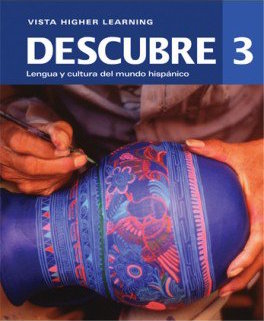
All Solutions
Page 379: Practica y comunicacion
* *I would have gone to the talk show if it hadn’t rained.*
* *If I had managed to publish my book, it would have been a best seller.*
* *I was upset that they had not given the award to the other poet.*
* *If we had thought so, we would have said so.*
* *If she had asked more for her paintings, she would have earned millions.*
* *What a pity her parents didn’t have (support) her interest in the arts!*
| |VOCABULARY | |
|–|–|–|
|Dudaba de que / *I doubted that* | Yo / *I* | escribir cuentos policiacos / *writing crime stories*|
|Esperábamos que / *We expected that* | Tú / *You*|ganar un premio literario / *winning a literary prize* |
|Me sorprendió que / *I was surprised that* |El artista / *The artist* |tener talento / *have talent* |
|Ellos querían que / *They wanted that* |Nosotros / *Ours* |venir a la exposición / *come to the exhibition* |
|No creías que / *You did not believe that* |Los poetas / *The poets* | vender ese autorretrato / *sell that self-portrait*|
* *We expected the artist to have sold that self-portrait.*
* *You didn’t think poets had won a literary prize.*
* *We had hoped that you would have come to the exhibition.*
* *I was surprised that we had talent.*
* *They thought I had written crime stories.*

